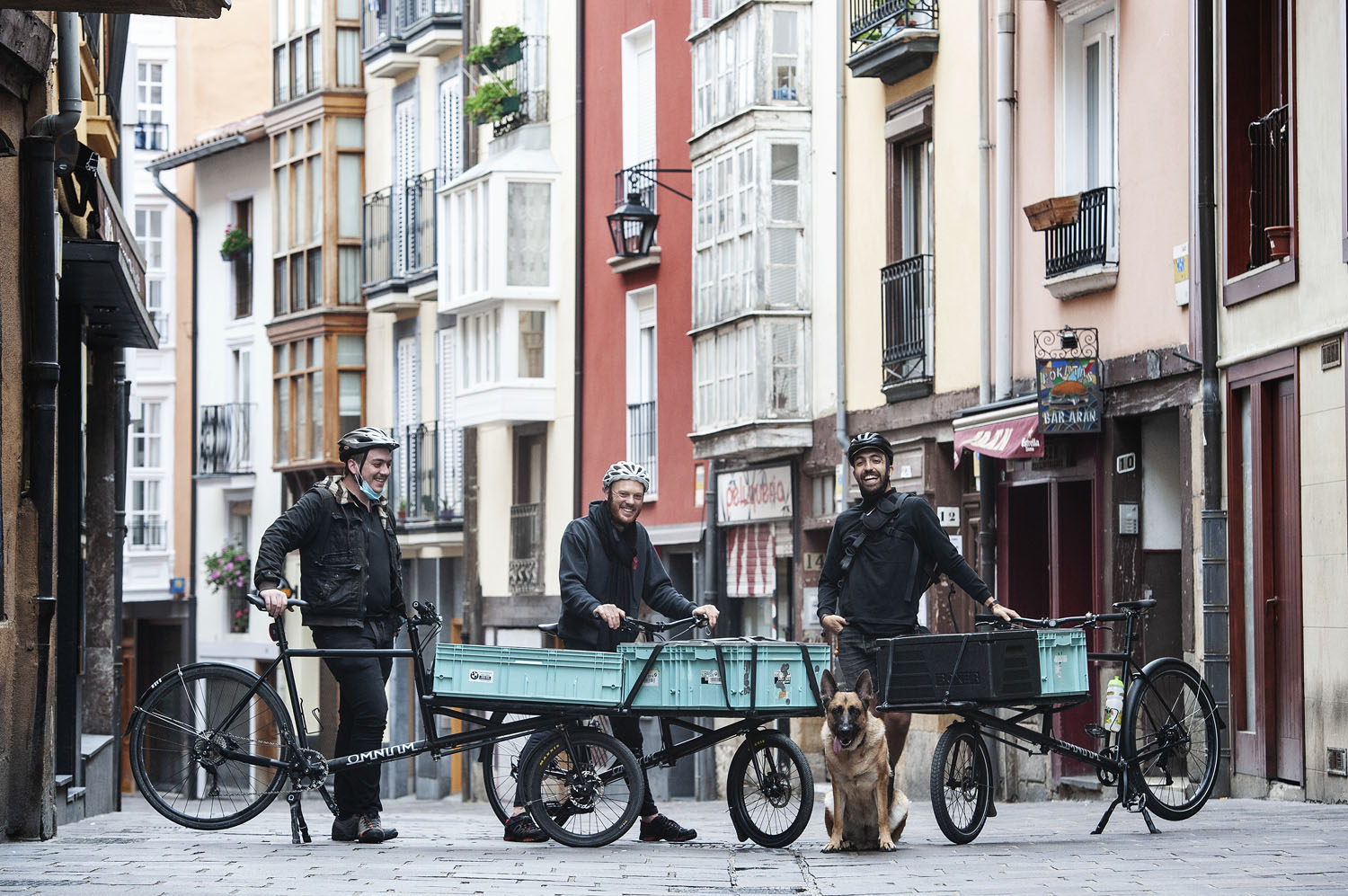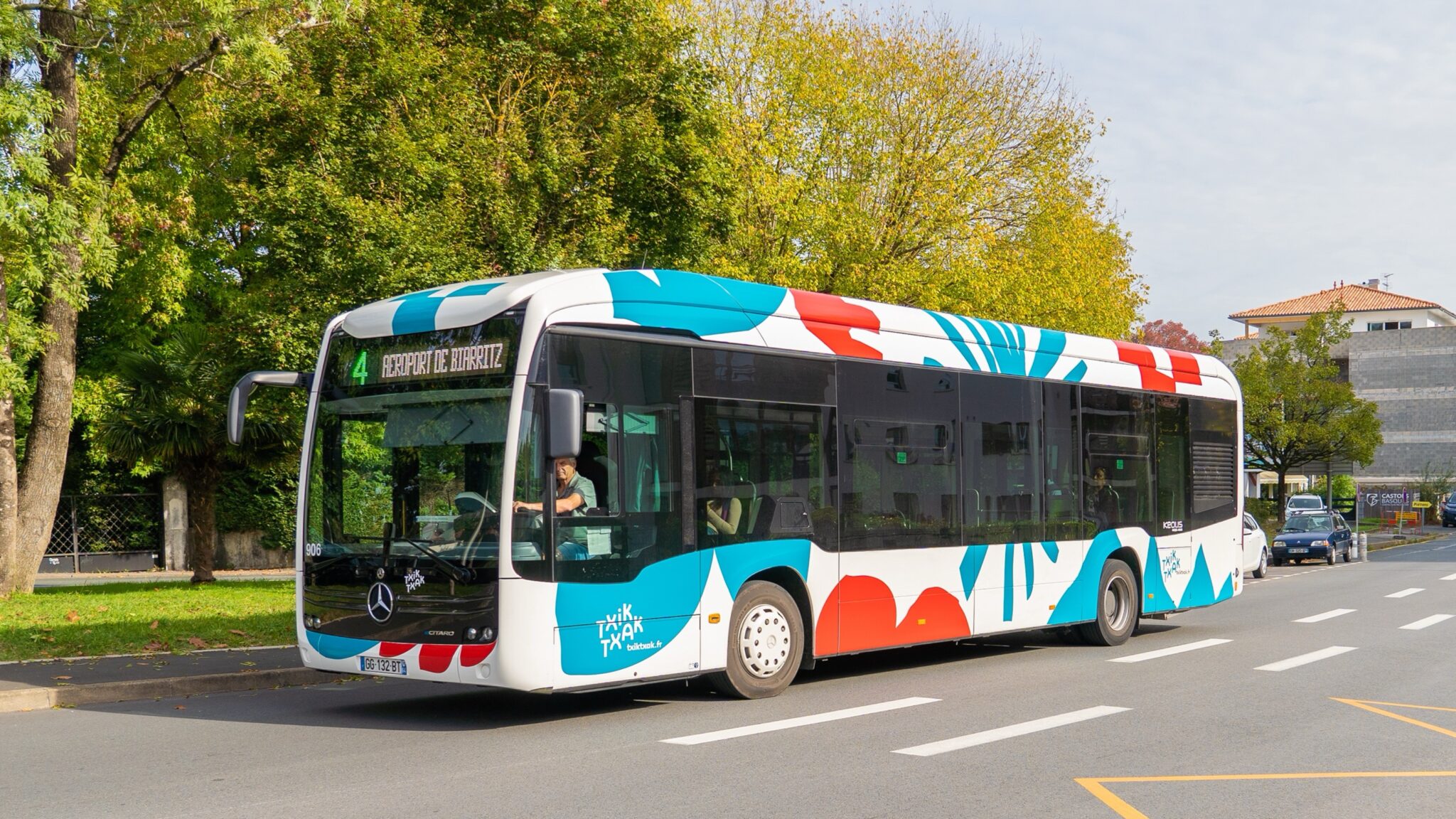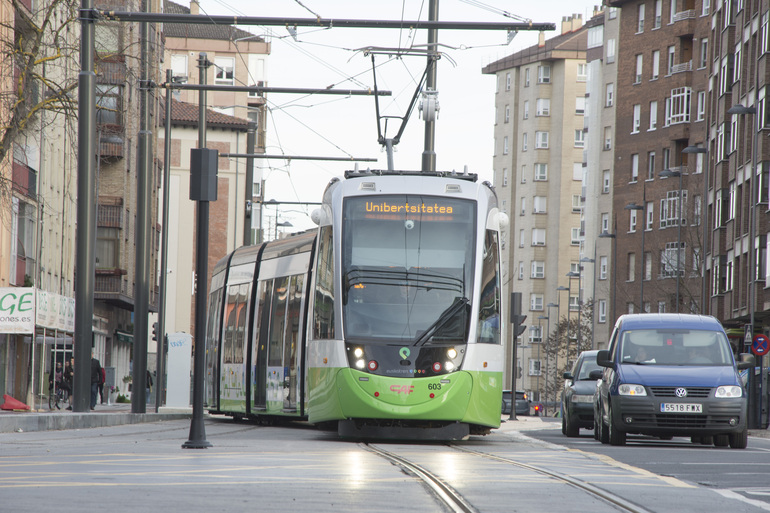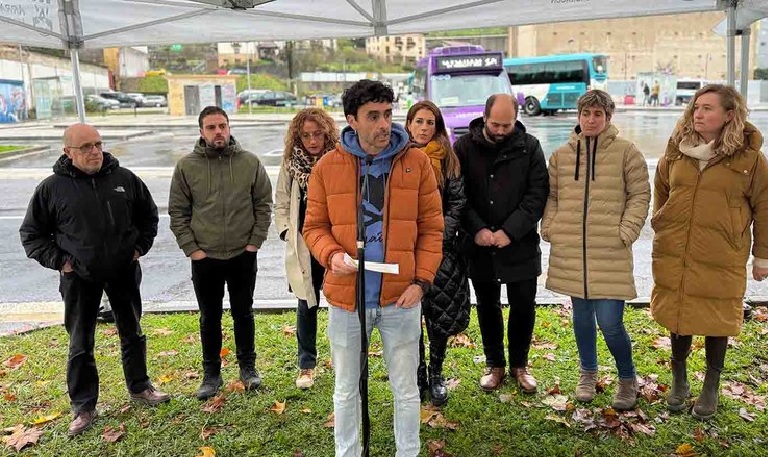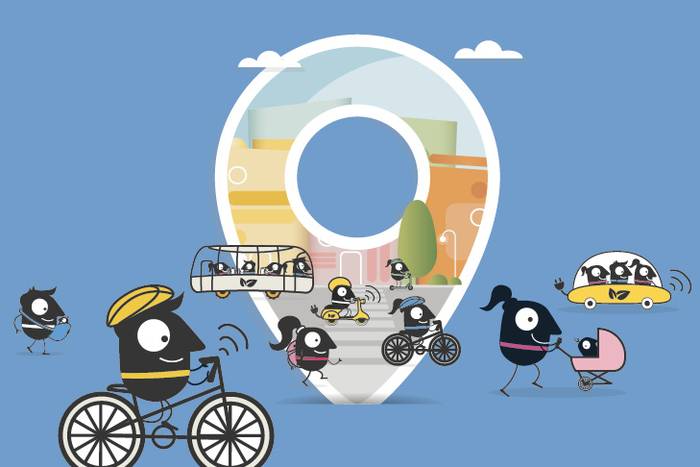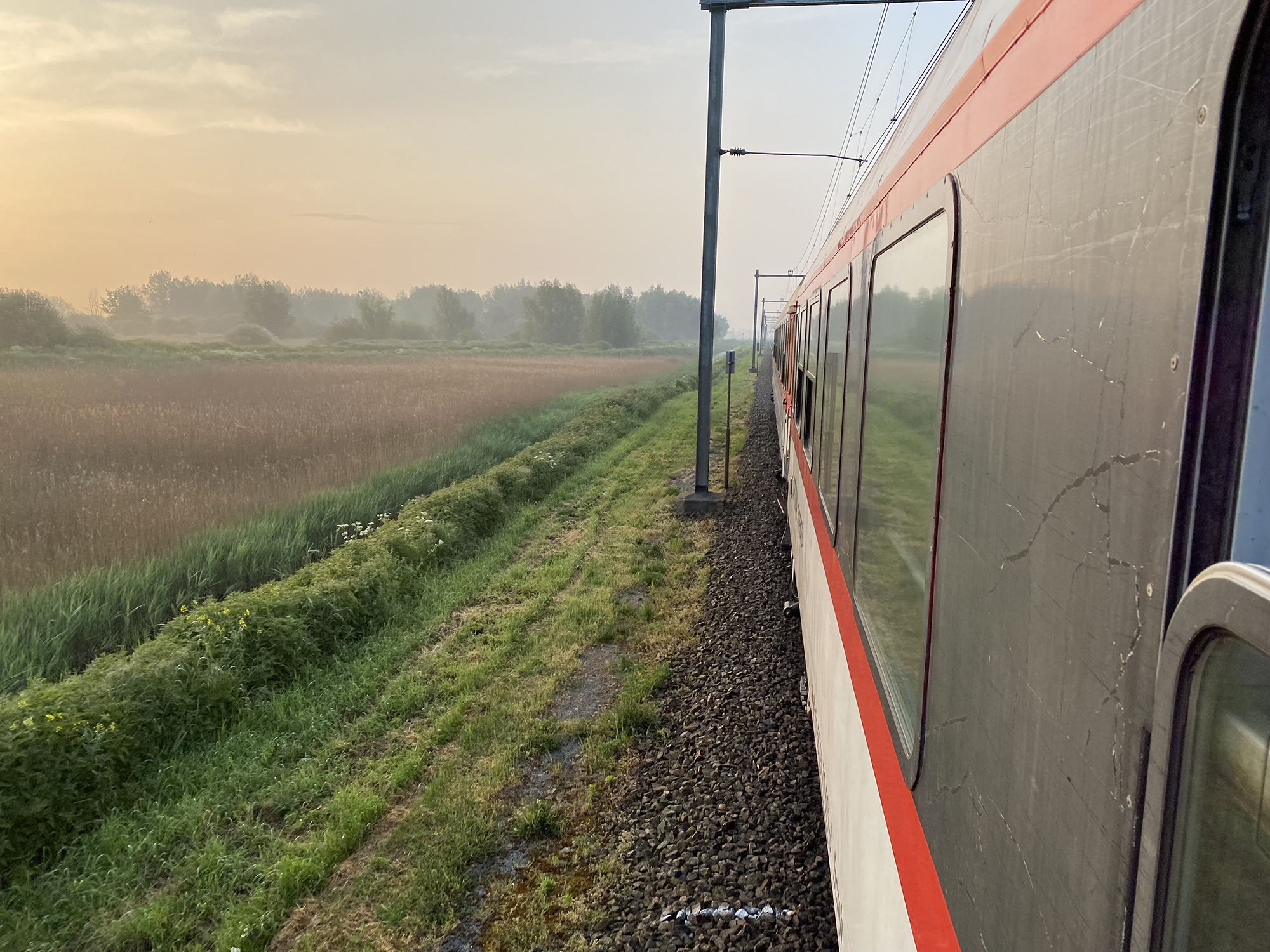It's market, friend.
- The management of the Buruntzaldea bus service has changed in July last year. They unified into one that was divided into three areas, took the new buses off the road and changed the schedules. However, the process has not been sufficiently calm. In the implementation of the new services there were many complaints because the changes made did not fit the needs of the citizens.

It's early, maybe before normal. For once I have decided to take advantage of the day and take the bus to Lasarte in less than eight rooms, and get up in time to fulfill what I have decided, because the stars always weigh more than desired. I hope at the stop of Urbieta Street in San Sebastian to finish the coffee requested already in the attached bakery. But after a few minutes no bus appears, unless I take me to Lasarte.
At the end of the eight o'clock, I launched myself to the stop of Avenida de la Libertad, in the small race, to catch the bus that I would have to get ready. By the time I got here, there's a little people waiting. We've been waiting and one day there's a bus going to Lasarte. A woman standing in front of me has asked the driver if the bus going through Amara, which was going to pick me up on Urbieta Street, is coming, has not happened. The question reassured me, because I have not lost the bus, but he. But the driver knows nothing, and since he too has come late and it is not in his interest to travel later, we have begun to climb. The other has appeared in it. Instead of passing eight, I have therefore come to Lasarte at eight and a half, earlier than on other occasions, but if you have to say everything.
On 1 July 2021, all bus services linking Tolosa with Buruntzaldea Donostia were renovated. Since then, users and drivers are not used to new schedules. Frequencies have changed and delays are less frequent. All of this makes the laziness that I get every time I take the bus even bigger than what I have in my normal life, and that every day I have to take the bus.
Until then, the bus lines connecting Donostia-San Sebastian with Lasarte-Oria, Andoain, Urnieta, Hernani, Astigarraga, Tolosa, Irura, Villabona and Usurbil were divided into three concessions. In 2014 the Provincial Council of Gipuzkoa launched the plan to rearrange the concession network of Lurraldebus. They ended in 2015, but the lines of Tolosa and Buruntzaldea remained out. Companies operating these lines resorted to public competition. The intention of the Provincial Council of Gipuzkoa was to link the lines served by these three companies in a single area to unite them all with the EU code.
Finally, the courts considered that the competition process was the right one, and the concession proceeded very late. Finally, the proposal by the Alsa Group and the Biscayan company Tansitia won the competition, with the contract being awarded in autumn 2020. It is a concession for ten years, which can be extended for another ten years, for a total value of almost EUR 10 million per year. The three companies operating in these areas were aimed at buses connecting San Sebastian with Tolosa and Buruntzaldea: The lines managed by the company Garayar bore the letter G, the lines of TSST the letter T and those of Areizaga the one of A. Since the entry into force of the new concession, all are named UTE. In total there are eighteen lines of fourteen days and four nights.
But the intention of the Provincial Council of Gipuzkoa was not only questioned by companies, but also by municipalities and workers criticized the preliminary draft concession. In 2017, they denounced the restrictions on bus lines for some 130 workers. Moreover, the preliminary draft of the Provincial Council of Gipuzkoa did not provide for the improvement of the working conditions of workers, nor did it refer to any determination or law in this regard.
Subsequently, in 2019, with the concession in the air, the workers denounced the inability to negotiate the agreement with the companies Areizaga, Garayar and TSST, due to the lack of authorization from the Provincial Council. Since the Provincial Council of Gipuzkoa presented the preliminary draft concession in 2017, the unions UGT and LAB denounced that the working conditions of the workers were frozen, and recalled that until the contract was awarded this was not the case for Diputación. But the issue got even longer. The new concession has also kept all the workers so far, as well as the fleet buses, except those for renewal. In this period, however, buses on these lines have aged even longer and the time has come to renew them.
To renew the Buruntzaldea buses, some of the oldest remaining from the Lurraldebus buses, the Provincial Council purchased 30 new hybrid buses. Mr Rafaela Romero said that the Lurraldebus fleet would become the most modern and green.
Bus stop Kaosa
For those who live in San Sebastian it is quite convenient to move around towns and vice versa. There is no lack of excuses to move between the Gipuzkoan capital and neighboring counties, work, go to school, meet with families and friends, leisure... According to data from the Provincial Council of Gipuzkoa, 6.5 million journeys were made on bus routes currently under the EU name in 2017. The main connection was between Hernani and San Sebastian, with 2,204 passengers per day and sense. Subsequently, the connection between Lasarte-Oria and San Sebastian was the largest, with 1,485 passengers per day and sense.
On 1 July 2021, therefore, buses changed image and denomination, but also on a regular basis. In theory, the Buruntzaldea bus lines went from 162 trips per week to 173, but when the new timetable came into force, the change was too noticeable and not for good. It is difficult for those who have to use it on a daily basis to adapt to this type of change, such as new schedules and names, even more so when they are not suitable.
As soon as the new lines were launched, the Provincial Council of Gipuzkoa had to meet with the municipalities and the company of bus routes. The changes that generated “chaos,” LAB said. The transport manager of Gipuzkoa, Ekaitz Telleria, explained in the statements made in July last year that the concession process had been closed in the courts and that the Council had not carried out the necessary works before the entry into force of the new lines.
On the one hand, Telleria denounced that the Provincial Council of Gipuzkoa had not compared the matter with the municipalities, and on the other, that the company itself did not know what the service was to be provided. In fact, they were handed over to bus drivers on the eve of the opening of the timetables on 30 June. The day before, moreover, many workers were unaware of the changes and told them that the next was going to be chaos.
Many users complained those days. Gipuzkoako Hitza received the highest number of incidents in Astigarraga, as they eliminated the station from the center and changed the frequency. The reduction in the frequency of the bus passing from Donostia to Hernani by Aiete also raised complaints.
Chaos was the first day of last July as well as the following days and weeks, and when a year is coming soon we seem to have become accustomed to new buses. Indeed, some corrections made to the services as a result of complaints have calmed anger and concern.
The Provincial Council of Gipuzkoa considered an example of the importance that the Provincial Council of Gipuzkoa attached to public transport. Many others see the market play behind all this, highlighting the weight of economic criteria in such contracts rather than the suitability and effectiveness of the service. There have been many social networks and news comments on the subject that have used the phrase “Es el mercado, amigo” of the Spanish politician Rodrigo Rato to summarize the situation.
Public passenger transport services by rail and road are subject to the Regulation of the European Parliament and of the Council. The Standard of 23 October 2007 sets the ultimate objective of providing services of general interest that are more frequent, safer, of higher quality and cheaper than those offered by the “simple game” of the market.
The problem is that the resources for this are increasingly limited. The economic crisis that has accentuated in recent years increasingly squeezes public services, such as the lives of people, and the resources that are supposed to overcome the logic of the “simple game” of the market are forced to fight it in a lost war. Public transport is an essential resource in Donostia-San Sebastián and Lasarte-Oria, and it is essential where it does not exist. But what are these decisions made of? Availability and what should depend on need is organised on sustainability and economic profitability.
To have a car (private) in Japan it is mandatory to have a parking (private). The measure seems controversial, as the regulation (the securities systems here) allows the occupation of spaces where the car deposit is public. That is, the problem is conceived as a responsibility... [+]
First of all, we wish to extend our condolences to the family and friends of the woman killed in early August.
The people of Gaintxurizketa are fed up with the disillusionment of the administration and those responsible.
Those of us who live in the neighborhood are forced to... [+]










